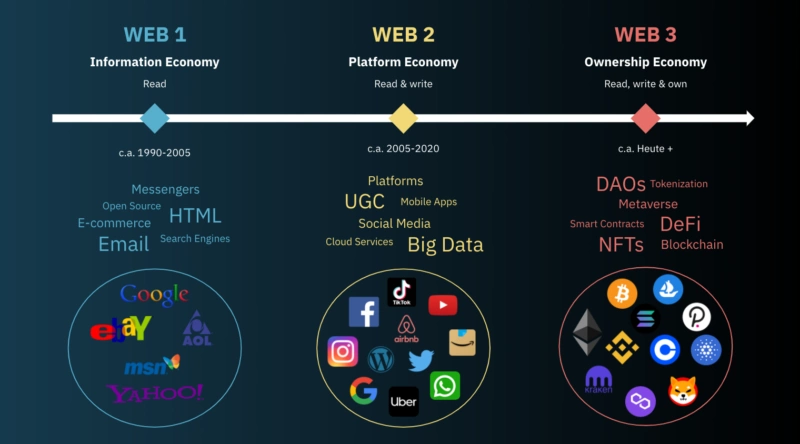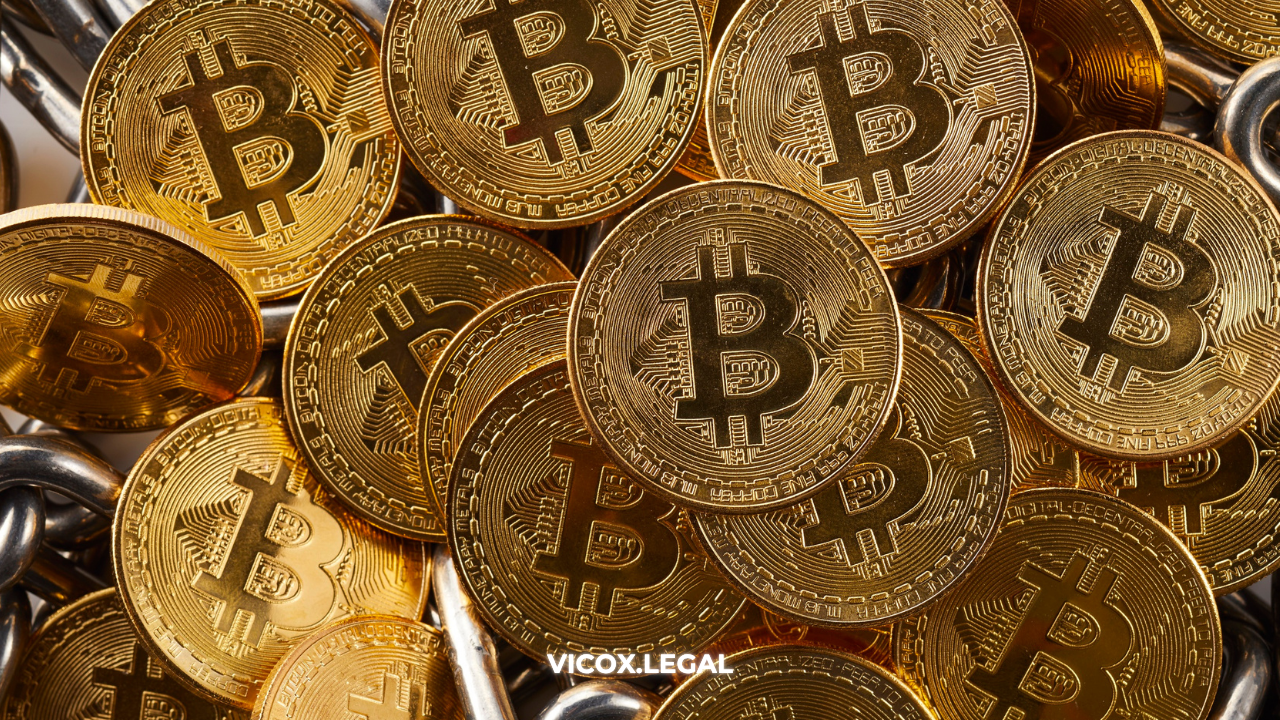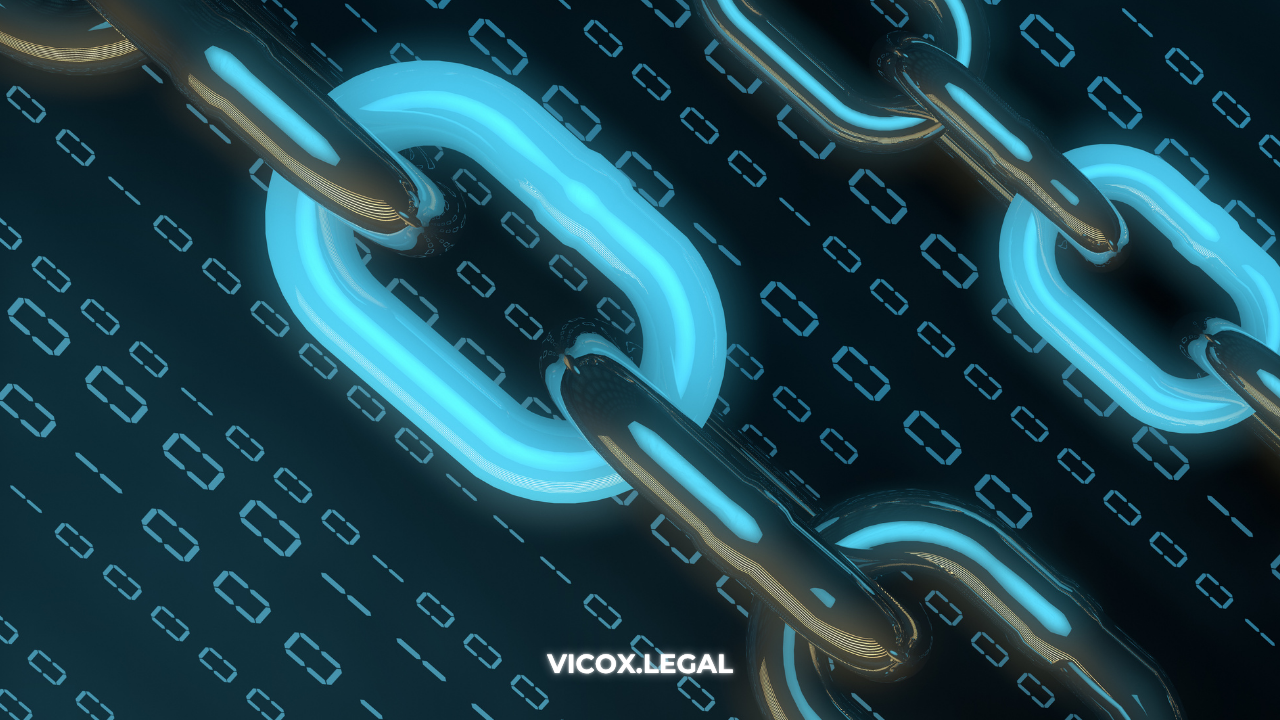Before focusing on Web 3, it should be mentioned that the web has evolved a lot over the years and is currently divided into three stages: Web 1.0, Web 2.0 and Web 3.0.

The first iteration of the Internet was the Web 1 in which the majority of participants were consumers of content on websites containing information in the form of text or images.
As for the Web 2 is, in general, what we know of the Internet in depth until 2020. The iteration it has is social and interactive in which users create content rather than just consume it as is the case with social networks. Here, content is isolated, centralized and managed by large corporations such as Google, Amazon, ...
Currently the Web 3 is emerging and solving the centralization problems of Web 2. Web 3 is the third iteration of the Internet that interconnects data in a decentralized way to provide a faster and more personalized user experience, using artificial intelligence, decentralized applications(DApps), a decentralized autonomous organization(DAO) and the semantic web (allows computers to analyze a large amount of data from the Web, including content, transactions and links between people), and uses security system blockchain to keep your information safe and secure.
Web 3 also works primarily with cryptocurrencies, rather than fiat currency. Finance and the ability to pay for goods and services with a decentralized form of payment are enabled in Web 3 with the use of cryptocurrencies, providing anyone with a financial incentive (tokens) for anyone willing to participate in creating, contributing to or improving projects.
Today, games and sports no longer only provide entertainment, but also a new form of economy in which the beneficiaries are not only the creators of the game or sports clubs, but also the players and fans who participate.
In the Gaming world we encounter Play2Earn (play to win), in which players can earn rewards through in-game assets such as cryptographic tokens, virtual lands, avatars, weapons and other non-fungible tokens, or NFTs, by completing tasks, battling other players or progressing through various levels of the game. The decentralized nature of Play2Earn allows players to purchase and transfer assets within the game and outside the virtual game world.
By joining the DeFi world with Play2Earn, concepts aimed at explaining this union arise, calling it GameFi or Game Finance, which is the combination of games and decentralized finance (DeFi), and allow its players to receive financial benefits from the real world. In addition, it combines elements of blockchain technology, such as non fungible tokens (NFT) and even DAOs. Thanks to GameFi, Play2Earn's business model can be realized, players are rewarded by the game and developers for devoting time and effort to their game, e.g. Axie Infinity, Decentraland, The SandBox.
The Fan Token business model is on the rise and already many sports teams such as FC Barcelona, Atletico Madrid, Manchester City, Juventus... are joining this current phenomenon. Fan Tokens we could define it as a kind of cryptocurrencies, digital assets on a blockchain, that gives holders access to a variety of fan-related membership benefits (subscriptions), such as voting on club decisions, rewards and merchandise designs. Most Fan Tokens are traded through the Socios.com app, which is based on the Chiliz blockchain and has its own native currency CHZ, which you can use to buy Fan Tokens on Socios.com. CHZ operates on both the Ethereum blockchain and the Binance smart chain. They can be purchased on exchanges such as Binance, Kraken and Coinbase. Dozens of sports teams and organizations around the world have made Fan Token Offers (FTO) for their loyal fans.

In addition to Gaming, Learn2Earn programs are becoming more popular in the crypto space. The idea is simple. You have to watch videos or read articles, then take quizzes, and if you pass, as an incentive, you get a specific amount of cryptoassets as a reward.
In short, we can conclude that Web 1.0 is a static information provider where people read web pages but rarely interact, and Web 2.0 as an interactive and social Web that allows collaboration between users, as for Web 3.0 lies in the great change of how websites are made as the way in which people will interact with greater decentralization achieving solid and innovative business models.
All the above is just a brief mention of all the complexity and transformation that exists in all the exposed matter. Do not hesitate to contact us to accompany you on the great road to change and success.




